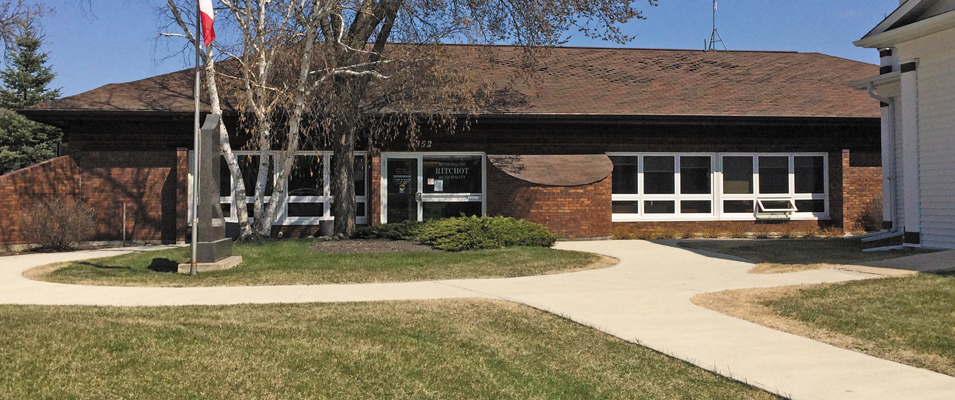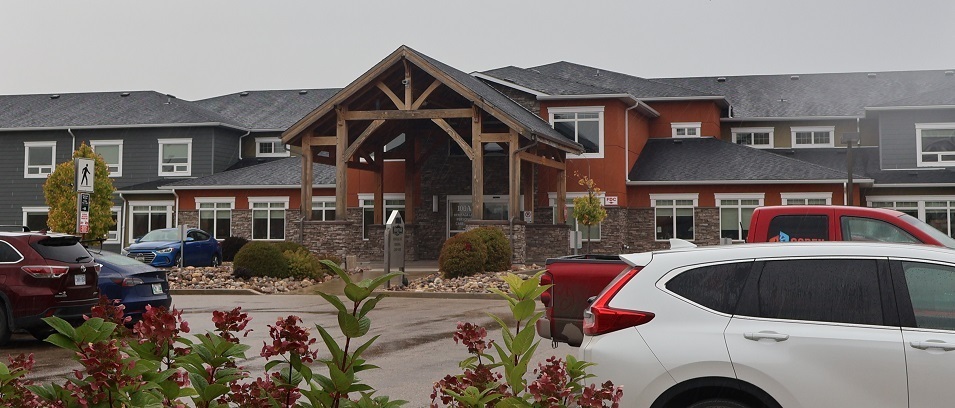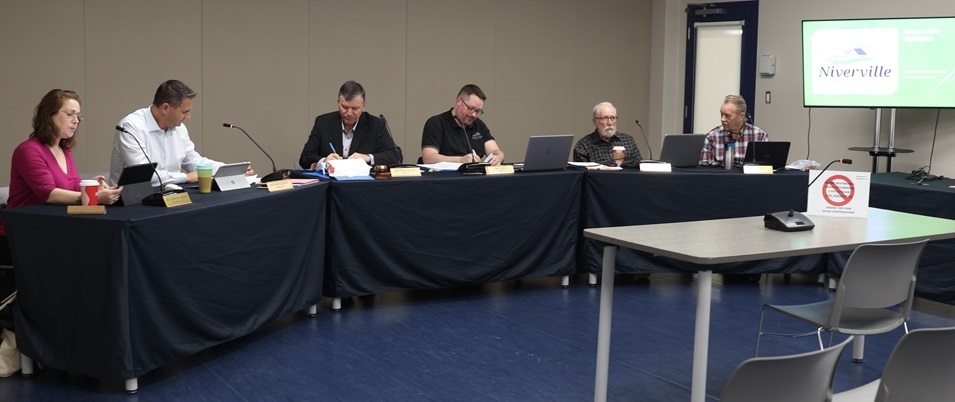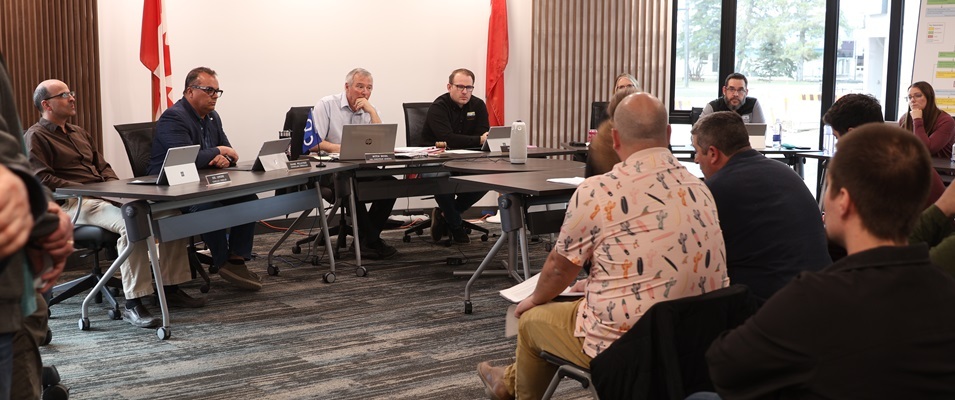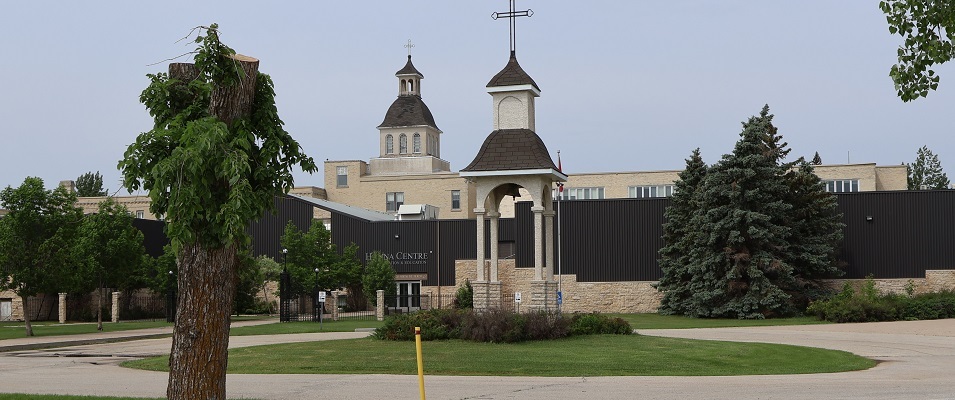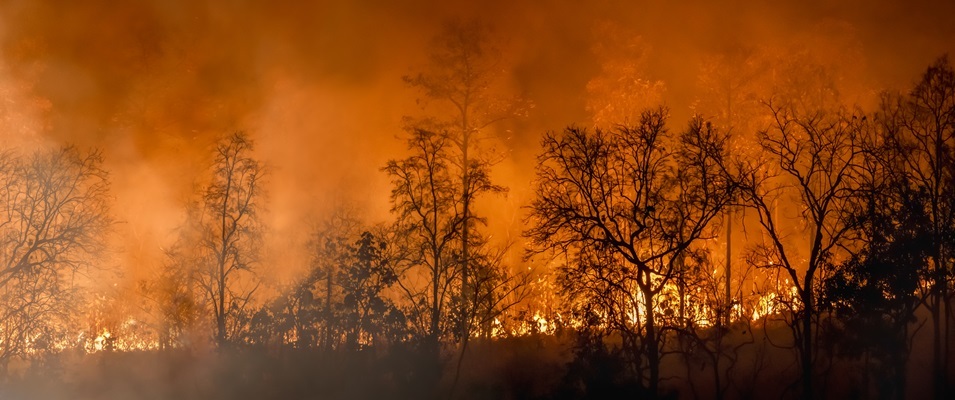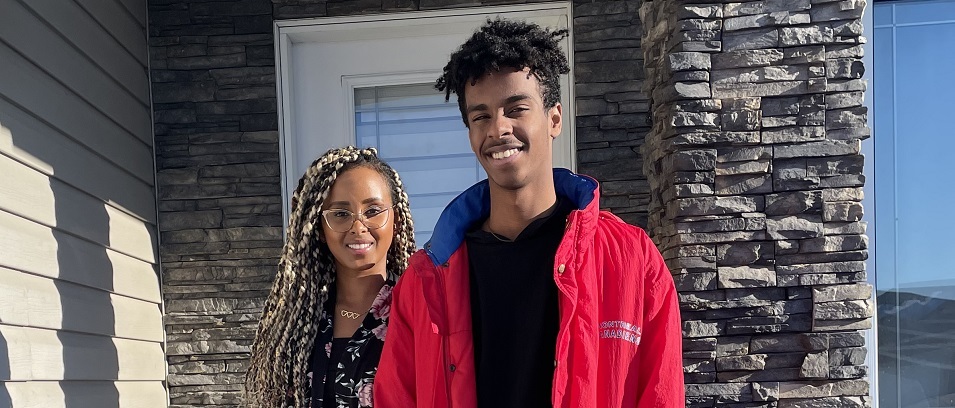
A Niverville family is taking steps to increase racism awareness after a local teacher was heard using the n-word while talking to a group of Grade Nine students in early November.
On the afternoon of Friday, November 5, the class was just getting started at Niverville High School (NHS). Isaack Dini, who is Black, was entering the classroom with a group of fellow students when he called out a greeting to one of his friends, who is white.
Isaack used the n-word to greet his friend, but he was surprised when the teacher entered their conversation and used the same word.
The substitute teacher, whose name has not been released, has since been placed on leave by the Hanover School Division.
This was the second incident of a Manitoba teacher using the n-word in a month.
The Dini family contends that both the high school and the Hanover School Division have mishandled the situation. They say that they’re still waiting for a satisfactory resolution, which for them would include an apology from the teacher, the teacher’s resignation, and further steps taken within the division to address racism education for both faculty and students.
The Dini Family
When the Dini family moved from Winnipeg to Niverville in 2019, they were expecting relief from city life. Isaack’s mother said they wanted a quieter life away from so much traffic and noise.
They had heard that Niverville would be a great place to live—and this turned out to be true. Their experiences with their neighbours have only been positive and the family’s eight children, ranging in age from five to 22, have all had success making friends.
Isaack’s aunt, Saadiyo-Ikram Abdillahi, is especially close with the family. She still lives in Winnipeg but was instrumental in helping her sister and the family move and adjust to town life.
Because of a language barrier, Abdillahi is listed as an emergency contact for Isaack and is often a spokesperson for the family when needed to help set up services and otherwise advocate for the Dinis.
“We’re extremely close,” says Abdillahi. “Me and my kids come out here all the time. We know the community. [My sister] moved out here last year, so it’s been about a year. Moving during COVID was hard, and at first the kids didn’t want to move, you know, because they had been going to the same school for a lot of years. But she’s a single mom and they needed a change. I said, ‘The schools are nearby, the community is great, they have good people here.’ The kids ended up loving it. They’ve made many, many friends. They constantly want to be out or have friends over all the time and they have great neighbours. They have never had anything like this happen to them. I’ve never heard of anyone making racist comments to them.”
For Isaack, the move was not made enthusiastically—at least in the beginning. But he knew that the environment in Niverville would be positive.
As is sometimes the case in smaller schools, he was concerned about making friends if there were already tight-knit cliques formed. Thankfully, he didn’t find it hard connecting with other kids.
The 15-year-old loves sports and is on the volleyball and basketball teams. His height contributes to him being a formidable player.
“I’m happy that the restrictions allow for it again,” says Isaack. “I didn’t get to do any of that stuff last year.”
The Incident
Understanding what happened on November 5 can be difficult. For the Dinis, the details are important in helping the community have a constructive discussion about racism education.
There is a video which shows Isaack and the teacher having an exchange in the classroom after the teacher said the racial slur. The Citizen has seen that video. In it, many other students are present and contribute to the interaction.
In an interview, Abdillahi describes what she saw happen in the video—and also what she has experienced with the Dini family since the incident occurred.
She says that Isaack’s mother called her for help after receiving a text from Isaack informing her that he was in the principal’s office.
The text also included the detail that a substitute teacher had called him the n-word.
Abdillahi says that Isaack’s mother was very upset, but that no one from the school called either her or Abdillahi, who was listed as his emergency contact.
“I’m pretty sure this was an important ordeal,” says Abdillahi. “You need to contact the parents, but my sister had to hear about it from my nephew in a text.”
When Isaack’s mother got to the school, she requested that Abdillahi come as well.
“My sister can speak English, but it isn’t her first language,” says Abdillahi. “She speaks fluent French and there are some anxiety issues surrounding speaking English, so I often come to help her with communication when it’s needed. She asked for me to come, but I work in downtown Winnipeg so it was going to take me a little while to get there.”
According to Abdillahi, the principal and vice-principal offered to hold off on meeting until the following Monday. But when that wasn’t acceptable to Isaack and his mother, they say they felt pressured by the school to talk about the incident before Abdillahi arrived.
“I was on the phone with my sister right there and I could tell she felt pressured and rushed,” Abdillahi says. “I advised them to start the meeting and just put me on speaker. They introduced themselves so I could know who was in the room: the principal, vice-principal, Isaack’s mom, and Isaack. I went straight to the point and asked Isaack what happened.”
She says that Isaack described walking into the class with his phone charger. He then saw a friend of his walk in. He said to the friend, in greeting, “What’s up, my n-word?”
He said the substitute teacher then pointed at both of them and said, “Which one of you is the n-word?”
The students looked at each other, and then his friend shook his head and walked out. Isaack took his seat, not knowing how to respond.
The teacher pursued the conversation further, asking to know who was the n-word between Isaack and his friend.
Implying Context
Abdillahi says that the principal and vice-principal tried to explain the teacher’s actions to her, which she felt was inappropriate because they were trying to imply context that would give the teacher a proper motivation for using the n-word back at Isaack.
“Well, who did she want everybody to identify in that moment?” says Abdillahi. “She was presumably trying to teach the kids something, but it wasn’t at all appropriate. And it wasn’t appropriate that Isaack used that word, either. In the meeting, I told Isaack he knows he’s not allowed to use that word and he said he knew. He knows he shouldn’t be using that word.”
Abdillahi also feels that the Friday afternoon meeting lacked transparency because Isaack didn’t even know the name of the substitute teacher and the NHS officials wouldn’t tell them.
“To me, it sounded like they were defending the sub in a way,” Abdillahi says. “They said she was using the word as an example to justify her reasoning as to why she had used it… I said that wasn’t at all appropriate and I immediately asked for the teacher to apologize to Isaack and to be fired. This is not the first time in our province where this has happened. I said I wanted it followed up. They said it would go to the superintendent and they were going to decide.”
The Aftermath
She adds that school personnel didn’t disclose that other teachers already knew there was a video recording of the incident, and that the video had been shared among the students as well as on social media.
In the video, Isaack identifies the exchange as racist. After a lengthy back-and-forth involving other students in the classroom, the teacher can be seen kneeling beside Isaack, removing her mask, and putting her hand on his shoulder while continuing to talk about why she said the n-word.
Isaack says that after the interaction seemed to go nowhere, the teacher walked out of the class and the students were left alone. One student from the classroom then emailed the class’s regular teacher, who was absent, to explain what had happened. Then this teacher got in contact with another teacher, who came in to talk to the students.
“The students had been left unattended,” says Abdillahi. “But when the other teacher got a hold of another teacher to come in, that’s when the students had an opportunity to tell what had happened. That teacher told the students to go tell the vice-principal what had happened. And then Isaack was summoned to the principal’s office.”
According to Isaack, the students who went to talk to the vice-principal were the students who had sided with the substitute teacher, saying that he was making a big deal out of nothing.
“After the meeting was over, when I got there to Isaack’s house, I sat Isaack down,” Abdillahi continues. “I took notes. He said he didn’t know the sub’s name. She was someone new and he’d never had her before. I asked him about a recording, if there was a recording of the incident. He said there were recordings, but [they were deleted]. But Isaack asked around and found one of the recordings. In our conversation on Friday, not once did they mention there was a recording.”
Abdillahi said after she viewed the video, she asked Isaack to ask his friends to remove the video if it was still posted anywhere.
“It’s heartbreaking,” she says. “In the recording, you can hear the teacher trying to justify her saying it. You can hear him trying to converse with her. He is going back and forth with her. You can hear him getting frustrated. You can hear the other students also identify to the teacher that she is being racist.”
She emphasizes again that she asked Isaack to take down the video, and for his friends to do the same. She wanted to wait until Monday to see if the situation would be resolved with the school.
Hanover School Division Response
On Monday, November 8, Abdillahi says that the school division still had not communicated with the Dini family. She reached out to the school repeatedly, and when she got no reply she approached a media outlet to help publicize her situation, which was aired on November 11.
In the televised segment, HSD supplied the media outlet with a comment, saying that the teacher was suspended and the incident was being investigated.
Here is the official statement from the school division: “Hanover School Division strongly condemns all racist actions and words. Commitment to equity and respect for human diversity are fundamental values of the Hanover School Division. No one has the right to discriminate against, harass, bully, show disrespect towards anyone else, at work/school or in any related situation. Resources will be made available for anyone who feels disparaged and needs support. The school has and will continue to communicate directly with parents/caregivers.
“This matter is under investigation and is being addressed in accordance with our divisional Respect for Human Diversity Policy and human resources protocol. The teacher in question is not eligible to work pending the investigation.
“Staff in our schools are committed to providing a safe, inviting, and inclusive learning environment that respects the human rights, diversity, and dignity of all students and their families.”
Abdillahi says that this statement is how she first learned about the teacher’s suspension, but she believes she should have received some direct communication from the school division.
She also says that the response didn’t go far enough. She has continued to ask for the teacher’s resignation, an apology, and for answers about HSD’s policy surrounding racism education.
After the incident was reported in the news, HSD interim superintendent Shelley Amos did send an email to the Dinis, dated November 12.
“HSD agrees with your concerns and is taking this matter very seriously,” Amos writes. “The school division is apologetic that this happened with one of our substitute teachers and does not condone this behaviour and language in any way, shape, or form. An initial apology was provided directly from the substitute teacher to the students.
“The school will continue to work with our student services department to provide any required support to those involved. The school and the division will work together to determine how to best move forward and work with students and teachers to promote anti-racism and support anti-racist education in classrooms. As a school division, our core work is of course education, and we always have room to learn, grow, and adapt as we walk through incidents and experiences to improve anti-racism education and support for our students.”
“No One Is Responding to Me”
But Abdillahi says that, as far as she knows, no apology was given from the substitute teacher to the students and that the vice-principal also owes Isaack an apology after insinuating there was an alternative version of the events he heard after speaking to other students.
Abdillahi has also asked HSD to clarify what support has been offered to students, since she’s not aware of any follow-up communication that was initiated with the students who were directly involved in the interaction with the substitute teacher that day.
“What’s the timeline?” she asks. “No one is responding to me.”
For this article, The Citizen requested an interview as well as additional information from HSD about the incident and Abdillahi’s specific concerns.
“We will respectfully decline an interview at this time,” wrote Amos in response to the interview request. “When the school became aware of the incident, immediate action was taken, and the Superintendent’s Office was notified. The teacher is not eligible to work, pending the results of the investigation. The school has and will continue to communicate with the parents/caregivers of those directly involved. Specific to your question regarding support, our clinical services are available to those directly involved.”
Abdillahi says that if clinical services have been offered to students, she hasn’t heard about it. She doesn’t feel that any support has been offered to the Dini family at all.
“No adults from HSD have come back to speak to the students,” Abdillahi says. “No one is talking to Isaack. I have emailed with the trustee as well and she had no idea what had happened. No one told her what happened in her school. She said they probably deleted the videos because they were protecting other children. I asked her for help and I don’t feel she is an advocate for me because I haven’t heard from her since.”
On Racism Education and Next Steps
The use of the n-word in everyday language is one of the toughest topics to tackle in society today. Few subjects are as contentious.
An article in The Washington Post, published in 2014, provides a good explanation of the difficult history behind this word and its continued use: “Though the word has long been entrenched in American vernacular, by all accounts it is more prevalent than ever—expanding into new corners of the culture, showing up in places (college debate, Christian rap, video-game culture) where it would have been almost unimaginable a generation ago and no longer following any clear rules about who can say it and who can’t.”1
Abdillahi agrees that it may seem tough to define precisely why the n-word should not be used, but the most important thing that could come out of this would be to improve the way racism is talked about in Niverville.
“The whole mute thing is not helping anyone. It’s not helping us. Let’s talk about this,” says Abdillahi. “We know the n-word gets used a lot in Black culture. Culturally, in music and in videos, it gets used very casually and we know there are some who are okay with that or think it is artistic. That’s one way to look at it. But we’ve always taught Isaack, we’ve talked about it that it is not a word we want to use. It has significant historical weight for our people, for people like us. We don’t want to use that word. Isaack has apologized for using that word. At the same time, I can’t educate anyone. I think it’s important for you as a person to go and educate yourself, if you’re willing. Read about Black history. Read about the history of the word. No one can educate you. You have to want to learn.”
Abdillahi says that the substitute teacher certainly has something to learn. She thinks it is possible that the teacher’s attitude could possibly be one that other people have in Niverville, but they don’t talk about it openly enough to learn why it is harmful.
“In the video she’s confident,” says Abdillahi. “She thinks she’s right… She thinks she should educate on racist language, but she herself has a miseducation there. What did she mean by what she said? She meant, one kid is Black, one is not. There’s no need to call attention to that.”
The Dinis want everyone to know that they love living in Niverville. They have felt very welcome and have had only positive experiences here.
They also ask people to look more deeply into what it’s like to live as a person of colour and break down walls. In other words, they want people to put themselves in the Dinis’ shoes.
“Most people in Niverville probably don’t think racism happens here,” she says. “I would ask, how would you know? If it’s not happening to you, [does that mean] it’s not happening? Then I would say, if it’s happening to your neighbour, it is happening to you. You don’t see a lot of Black families in Niverville. Even in the city, we’re teaching our kids, I’m teaching my sons, ‘Don’t do certain things because you’re Black.’ If you’re a white family, you don’t do that. You don’t teach them these things because you don’t have to.”
Modelling Better Behaviour
Abdillahi is asking HSD to review its policy on racism incidents and make improvements in specific ways so that this doesn’t happen to other families.
“The staff and the superintendent need to improve how this sensitive issue was handled,” she says. “The timing of the communication needs to be directly improved. That quote that was made by the superintendent was first provided to the news, it was not provided to me until after it was on the news… You need to talk to us as people.”
Abdillahi says that it would be beneficial if students were offered the opportunity to discuss what happened and learn from it as a real-life example. She believes that the adults at the school, as well as parents in the community, can step up and take the lead to model better behaviour for young people.
One specific thing that should be modelled, she says, is a direct apology to the family.
“An apology needs to be made to my nephew and his family, from all the staff involved,” says Abdillahi. “They all individually took part in all of this, some who were specifically involved and now each of them by their silence. The students need to be given the opportunity to have a discussion with the adults at the school and talk about what happened. It’s not hard to see how the adults could lead here. They could even tell the students, ‘Look, we didn’t handle this very well.’ There’s no shame in saying that. The students already know the adults didn’t handle it well, but now they need to be modeled true leadership and humility… The communication needs to begin again and it needs to be done well.”
Abdillahi is also working with Parents Against Racism (PAR), a Manitoba group of parents who advocate for people of colour and spread racism awareness and education.
Currently, the group works within the Franco-Manitoban School Division, but Abdillahi is hopeful that Niverville will start its own advocacy group.
“I’ve talked with PAR to see what else can be done,” she says. “This will not be swept under the rug. There is always another step I can take and I would love to see the community step up and embrace this topic.”
With PAR’s help, Abdillahi is drafting a petition to send to the town of Niverville at large. She will be asking for parents to help in addressing racism in the community and possibly start a PAR committee to work with the schools.
The petition will be made available to parents of students connected to the incident that happened on November 5 as well as distributed via social media in the hopes of establishing as much community support as possible.





